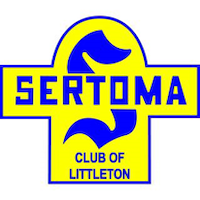About Doreen Pollack
Background
Doreen Pollack earned a Diplomate of Speech from the University of London, England in 1940. She then received a Licentiate, Speech Therapy from the College of Speech Therapists in England in 1944. She survived the devastation of World War II while living in England and then immigrated to the United States with her husband to restart their lives in a new country after losing so many family and friends to the war.
From 1948 to 1950 she was a speech pathologist, audiologist, and instructor at Columbia Presbyterian Medical Center in New York City, New York.
Doreen moved to Denver in 1951 after immigrating to the United States in 1948. She lived in Colorado for the remainder of her life. She received a Bachelor of Arts Degree from University of Denver in 1961.
From 1952 to 1959 she worked as a clinical supervisor at the University of Denver, before becoming a PaedoAudiologist (children’s audiologist) at the University of Colorado Medical Center in Denver from 1959 to 1964. In 1965 Doreen became the Director of Speech and Hearing Services at Porter Memorial Hospital in Englewood, Colorado.
From 1965 to 1981, as the Director of the clinic of Speech and Hearing Services at Porter Hospital, she established the Acoupedic Program for teaching listening and spoken language to children who were deaf and hearing impaired. This was later named Auditory-Verbal Therapy and today it is referred to as Listening and Spoken Language Therapy, but the principles of this therapy remain the same. Doreen’s practice became world renowned and both families of children with hearing loss and professionals traveled to Denver to learn under her tutorage.
We are not training the ears, we are training the mind to interpret what the ears hear.
-Doreen Pollack, 1970

Acoupedics or ‘Listening Children’
In the 1940’s Doreen developed the radical idea that even children who were profoundly deaf had enough residual hearing to be fitted with powerful hearing aids that could amplify the sounds of everyday life so that those sounds could be heard.
Perhaps the most critical part of this approach was teaching the active involvement of the family in both the therapy session and at home. Doreen was devoted to the idea that learning to listen was the pathway to speech.
Doreen perfected the one-to-one therapy method that focused on helping these children identify and learn the meaning of the sounds they could hear with their hearing aids.
Doreen Pollack was a pioneer. She was way ahead of her time in the knowledge and belief that children with profound hearing loss (a hearing loss that without amplification, they would not hear a passenger jet flying low overhead) could hear with powerful hearing aids and be taught to listen and develop verbal language and learn to read on par with their chronological age. She also knew and vigorously advocated that it was vitally important to identify children with hearing loss as soon as possible and then fit them with hearing aids. Doreen believed that these children would use written language, communicate with the larger community, play musical instruments, and learn other verbal languages with the same outcomes as any child born with normal hearing.
In Doreen’s clinic the children learned to listen and talk with the use of hearing aids and training to maximize their residual hearing so they could develop speech in a natural way….by listening.
Doreen used creative and fun approaches that were age appropriate for teaching children; for example, using toys and books rather than flash cards, and focusing on typical child developmental stages to guide treatment plans even if a child was delayed.
She also used alternative strategies when a child was multiply involved (more than one disability) and needed additional sensory cues to learn.
Doreen worked tirelessly each and every day to be sure every family received the necessary services and support. She did not place limits on people.
Doreen listened to parents and encouraged and taught them to teach their children. She focused on the positive aspects of a child or family rather than the deficits. She always looked at what a child or family could do rather than what they could not do.
Doreen taught children to believe in themselves and not let their disability define them. She was an example for the young girls in the program showing that they could achieve anything they desired. Doreen consistently encouraged children to reach their full potential and to become independent citizens who use spoken language to communicate so they do not need to rely on sign language interpreters. These children became doctors, lawyers, and business professionals who are fully integrated into their communities.
In time, Doreen Pollack established and published the 10 Principles for practicing the acoupedic approach in 1970. These 10 Principles are still used globally for listening and spoken language therapy programs around the world.
Accomplishments and Contributions
The impact of Doreen Pollack’s method for teaching children who are deaf to listen and talk has literally been “heard” around the world. She was a true pioneer in the field of speech pathology and audiology at a time when the medical community did not believe anything could be done for the profoundly deaf child. Her intellect, dedication and tenacity changed the way we look at, address and treat children with hearing loss both in Colorado and internationally.
At that time, deafness was viewed as an educational problem. It was not viewed as a medical problem because there was no effective medical intervention available for the severe to profoundly deaf. Doreen had to go up against the medical community (pediatricians, ENTs, audiologists, speech-language pathologists) and convince them that her approach would work. In time, Doreen worked closely with medical doctors within Colorado and elsewhere to educate them about hearing loss and how using high powered hearing aids in combination with this therapy method, could teach children to listen, talk, and be fully mainstreamed. She also advocated for early identification of hearing loss in the state of Colorado.
Doreen’s accomplishments were remarkable. In the 1950s, there were no powerful hearing aids. In fact, she had to battle the Colorado Department of Health that was responsible for acquiring hearing aids, to get them to provide the most powerful hearing aids available at that time. Doreen left no stone unturned to find ways to bring the “deaf” into the broader world of hearing where the children would be able to attend their neighborhood schools, interact with hearing children, and thus develop appropriate social behavior and participate in sports, games, parties and interact with their neighborhood and community.
Doreen established an out-of-state program and the Denver ‘Listen House’ in conjunction with the Listen Foundation that allowed families from all over the United States and internationally to be immersed in an intensive week-long educational and therapeutic program that included: therapy, social work, occupational therapy, physical therapy, audiological services, thorough consultations and a detailed written treatment plan. Typically, there was a 9-12 month waiting list for families to attend this program.
Doreen received federal funding in 1978 to conduct a 9-month training program to train professionals in the Acoupedic approach. This training program included lectures, clinical practice and participation in supplemental services such as school visits, occupational therapy and observation of social work sessions. This evolved into a certification in auditory-verbal therapy practice.
Doreen was committed to teaching her methods through beginner and advanced training courses at the University of Denver so that hearing professionals could return home and start their own programs. The attendees were trained in the fields of speech pathology, audiology and deaf education. These individuals came from around the country and abroad to learn the approach developed and used by Doreen Pollack.
The certification program that Doreen helped establish for auditory-verbal therapists laid the groundwork of a brand-new profession.
Doreen was one of the first professionals to advocate for children with hearing loss to be mainstreamed in classes with children with typical hearing.
She conducted research and published her findings to provide objective data to support this approach for children and their families.
In these ways, Doreen, a wife, mother of three, administrator, therapist, trainer of therapists and lecturer, was a pioneer in the field of audiology and the education of the deaf. She inspired parents and provided hope that their child would be able to listen and talk. She also inspired professionals to train and continue her ground-breaking approach to prepare children for public school integration where they would receive modeling of proper grammar, normal intonation of speech and be around normal modeling of behavior. Most importantly, so the children could achieve their full potential.
Doreen published the first textbook on the Auditory-Verbal approach (then called Acoupedics) in 1970. Three editions were written with the 3rd edition published in 1997. This textbook was the number one book used in university and training programs internationally.
In addition to her book, Doreen authored numerous articles, was a consultant, and contributed as a guest lecturer and facilitator of workshops throughout the United States, Canada and Mexico. She was also a longtime member of AG Bell and a founding board member of International Committee of Auditory-Verbal Communication and Auditory-Verbal International.
Honors
In 1973, Doreen was recognized by Colorado Governor John Vanderhoof, and presented with a plaque honoring her 25 years of service in pioneering the Acoupedic method in Colorado and providing therapy to the hearing impaired.
Doreen received the Honors of Alexander Graham Bell Association for the Deaf in 1982.
Auditory-Verbal International Inc. honored Doreen as Director Emeritus for her extraordinary vision and leadership in 1995.
Mrs. Pollack’s original 10 principles for teaching children who are deaf to listen and talk with parents as partners in the program is now the standard of practice throughout the United States and internationally. Her audiological practices also became the standard of practice in the United States.
Postscript
While inspiring others, Doreen was fighting her own battles. She overcame the damaging and lifetime effects of contracting the polio virus in her mid-thirties. Doreen was told that she would never walk again, but that was not an acceptable option to her. She learned to walk and spent many weekends hiking in the mountains of Colorado with her family. Doreen also had a genetic kidney disease that eventually caused her kidneys to fail and required her to receive dialysis three times a week for the remainder of her life. However, she never let her own medical issues stop her from pursuing her goals of helping children achieve their best possible lives. For the good of the children, Doreen always put her needs second.
Doreen’s training programs and internships, which taught this approach to professionals, have given children around the world the option of listening and spoken language even if they are profoundly deaf.
Her research was some of the original work done to show the efficacy of this approach and has been replicated over the years.
Doreen’s contribution can best be summed up by one of her first students, now in her sixties, who recently wrote….
“Doreen Pollack has left a legacy to all of us who will always be indebted to her for giving us our lives – lives full of sounds that have meaning, lives that are full of friendships, and lives that are full of life and love. Yet throughout her life Doreen endured more than her share of life’s trials within her own family, her adult onset polio, and aging with kidney disease, all of which she showed such courage and determination to overcome with such grace. I feel that her journey shaped the way she was able to teach and show empathy, yet independence to all of us who were fortunate to be one of her students’
Doreen Pollack instilled in me perseverance and dedication, but most of all, a belief that I could do this and become the person I was meant to be”.
Today Doreen Pollack’s legacy lives on through the Listen Foundation. Following is a short documentary about Doreen’s life.
There have been many times when she has announced how thankful she is that she can hear and speak. She truly appreciates the gift.
–Becky, Mother of a Listen Graduate

We Appreciate our Generous Sponsors

















![]()




Office Location
Listen Foundation
6950 E Belleview Ave, Suite 203
Greenwood Village, CO, USA 80111
info@listenfoundation.org
(303)-781-9440
Recent Facebook Posts
Scroll down below to see more posts




